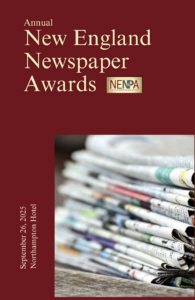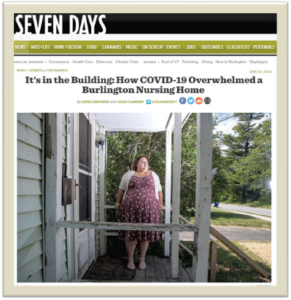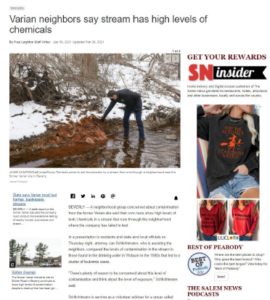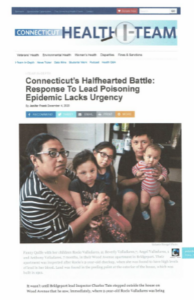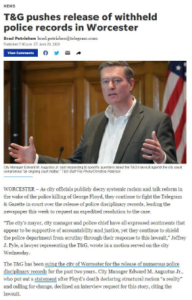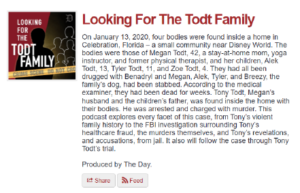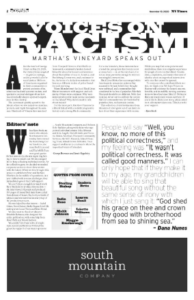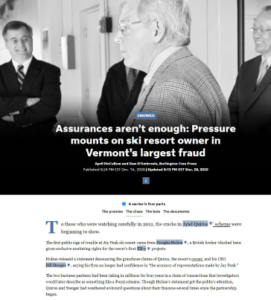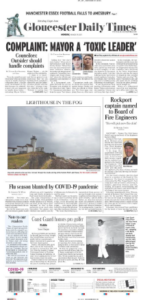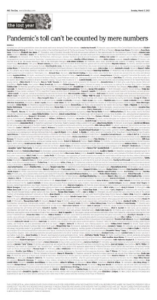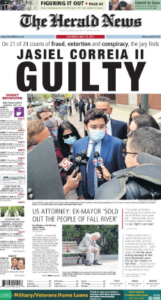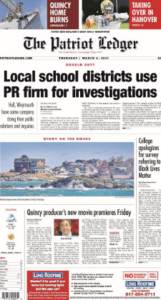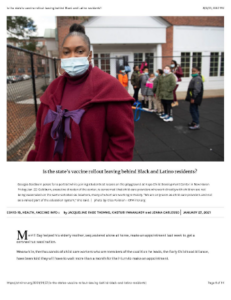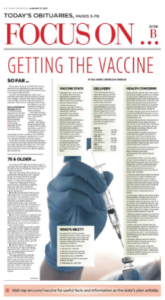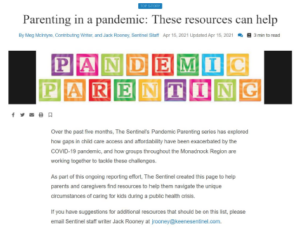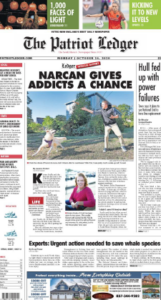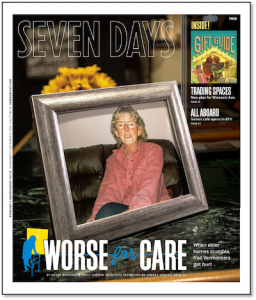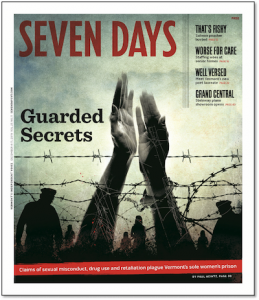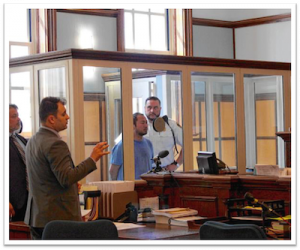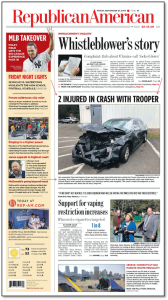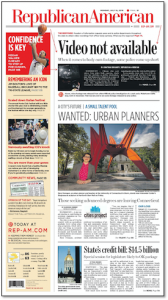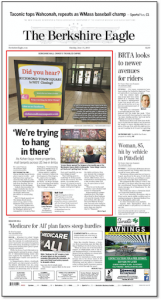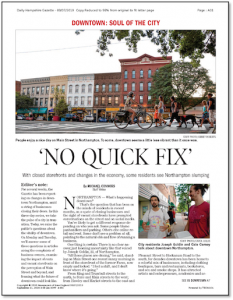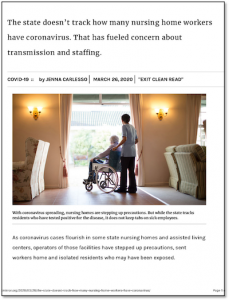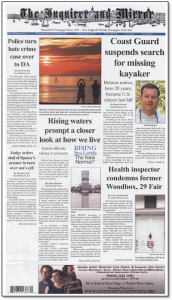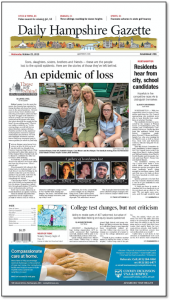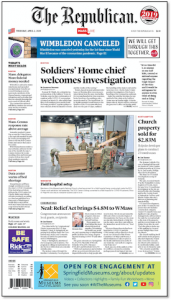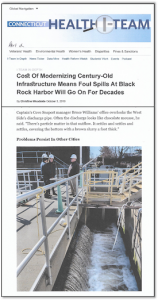Seven Days, Burlington, VT
“Give and take”
This exhaustive (in a good way) series examined every aspect of an important, and growing, sector in the state of Vermont. By stretching out the series over five consecutive issues, the staff of Seven Days was able to look at non-profits big and small, including a first-person account of setting up a 501(c)3. Of special note is the creation of a database, used to inform the series and kept current, that is also available to the public. While nonprofits are not a particularly sexy subject, Seven Days was able to make the series compelling and even led to an embezzlement charge in the fundraising arena.
Cape Cod Times, Hyannis, MA
“Pilgrim closes”
Not just the final story detailing the closure of the Pilgrim Nuclear Power Station, but the overwhelming package of investigating reporting by Christine Legere must be credited with not only bringing to light the dangerous problems with the aging plant but ultimately, significantly, impacting the decision to close it down. This is the type of reporting that makes a difference and reminds us all of the importance, impact and value of professional journalists. Congratulations to the newspaper and
the reporter for the effort made to bring this story to the public.
Concord Monitor Concord, NH
“Finding hope”
The Concord Monitor deserves credit for a tremendous series detailing one family’s journey through the despair that followed the suicide of a 14-year-old son, while more broadly examining the issue of youth suicide. The newspaper covers all the angles, taking pains to provide geographic balance across southern New Hampshire communities and approaching its topic through the multi-faceted lens of legislation, school programs and personal anecdotes from survivors exploring various means of coping with mental illness. Comprehensive without bogging down, the crisply written narrative is complimented by compelling photos which provide readers with a poignant and intimate look at those touched by tragedy. Lastly, this series was extremely well organized and presented, with a recap of previous stories accompanying each new installment. The Monitor team should be applauded for a solid, professional effort handled with care and tact.
Worcester Magazine, Worcester, MA
“How sex ed really died”
An examination of a socially important topic that never saw the light of day until this publication unearthed a series of secret emails and other correspondence. The controversial issue of teaching sex education in public schools needs to be heard in a public arena, particularly for a city with a high teen-age birth rate. This is the type of watchdog reporting that will keep journalism alive and well in the future.
The Herald News, Fall River, MA
“Mayor Correia”
This local paper distinguished itself with blanket coverage on an issue of great national interest. It proved that a local news staff, including some who came to work on their days off, is unbeatable in the depth and breadth of its coverage of a major story that unfolded for months in their hometown. The Herald News was at the ready and jumped in with thorough, thoughtful coverage from the very moment an indictment was returned.
Concord Monitor, Concord, NH
“Fighting back”
The Concord Monitor continues to enhance its reputation of quality reporting with an aggressive and detailed four-part series on the problems and societal impact of domestic violence. As with others selected by Publick Occurrences judges this series had to have made a significant impact on the communities the newspaper serves. The stories of abuse and how to get help were well done, dramatic and detailed in such a way to clearly raise the level of debate, as the newspaper cited that…”helped make the community a safer place.”
The Sun, Lowell, MA
“People can just be so cruel”
This is a powerfully well written and well presented series on the expanding social media problem of young people who are targets of online bullying and body shaming. In only a few opening paragraphs the emotions were stirred in readers with details of a young girl’s suicide as a result of the online ridicule. As with other stories selected by the Publick Occurrences judges the work that went into this series expanded into other news media helping to make an important impact on the communities served by the newspapers. It also created an expanding dialogue among parents, children and community services to help lessen the suicides of young boys and girls.
The Keene Sentinel, Keene, NH
“BetterBone Inc.”
This starts out as a story about an out-of-state entrepreneur planning to move a new business to a vacant local mill complex, and promising to hire more than 200 employees for well-paying jobs. Sierra Hubbard saw red flags and searched records from two states and numerous agencies, discovering criminal records and personal and professional blemishes on the company owner’s background. From there the series evolves into an
impressive example of investigative reporting. The in-depth reporting includes exceptional research and quality writing on the fallout—a woman who said she made an offer on a bigger house based on paychecks she never got, the businessman’s arrest at a labor department hearing on Massachusetts theft charges, and a ruling the he’s personably liable for more than $28,000 in back wages. Her reporting likely saved hundreds of area residents from getting ripped off.

